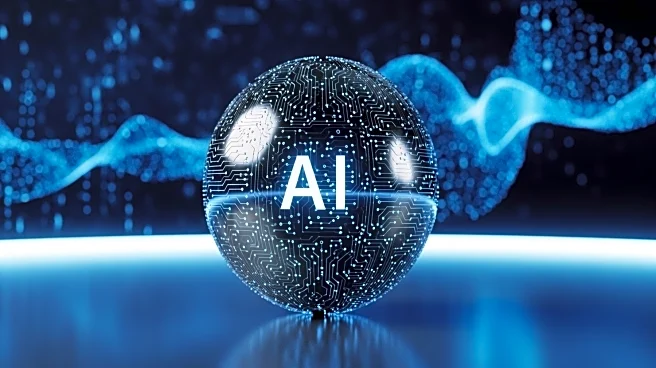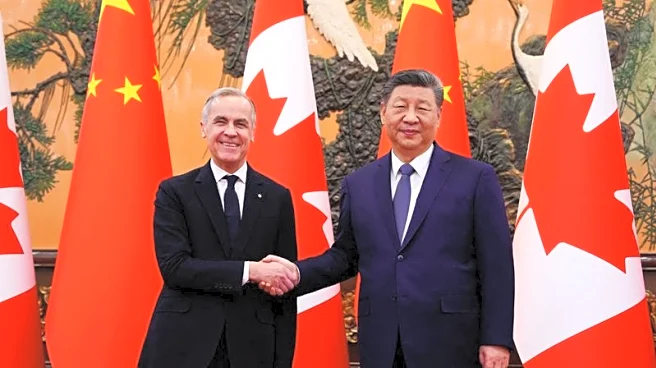What's Happening?
A coalition of over 850 prominent figures, including technology experts and public personalities, has issued a statement urging a halt to the development of 'superintelligence'—a form of artificial intelligence that
could surpass human cognitive abilities. Notable signatories include Virgin Group founder Richard Branson, Apple co-founder Steve Wozniak, and AI pioneers Yoshua Bengio and Geoff Hinton. The statement highlights concerns about the potential risks of superintelligence, such as economic obsolescence, loss of civil liberties, and national security threats. The call for a ban emphasizes the need for public support and scientific consensus on the safe development and control of such technology.
Why It's Important?
The call to pause the development of superintelligence reflects growing apprehension about the rapid advancement of AI technologies. The potential implications for society are vast, including the risk of job displacement, erosion of privacy, and challenges to national security. The involvement of high-profile figures from various sectors underscores the widespread concern about the unchecked progression of AI capabilities. If superintelligence were to be realized without adequate safeguards, it could lead to significant disruptions in economic and social structures, affecting industries, governments, and individuals globally.
What's Next?
The statement suggests that further development of superintelligence should be contingent upon achieving a broad public consensus and establishing robust scientific guidelines for its safe implementation. This could lead to increased regulatory scrutiny and potential legislative action to govern AI research and development. Stakeholders, including tech companies, policymakers, and civil society groups, may engage in discussions to address the ethical and practical challenges posed by advanced AI systems. The ongoing debate is likely to influence future AI policies and research priorities.
Beyond the Headlines
The ethical considerations surrounding superintelligence highlight the need for a balanced approach to technological innovation. The potential for AI to impact human rights, autonomy, and societal norms raises questions about the moral responsibilities of developers and policymakers. Long-term, the discourse on superintelligence could shape the cultural and legal frameworks governing AI, prompting a reevaluation of how technology aligns with human values and societal goals.











